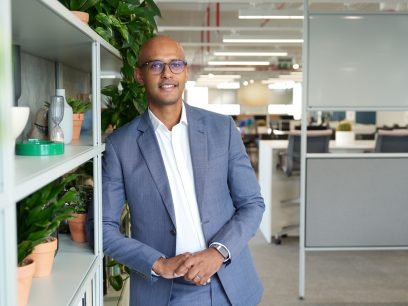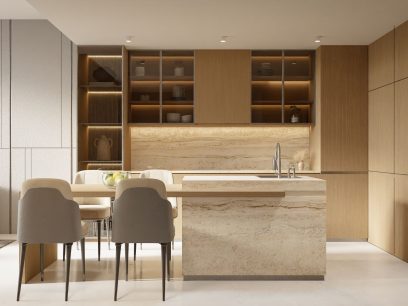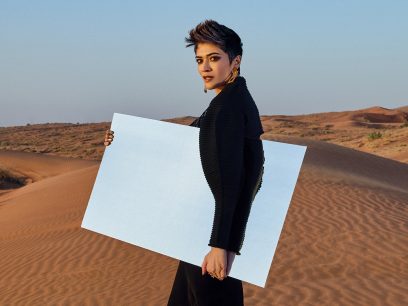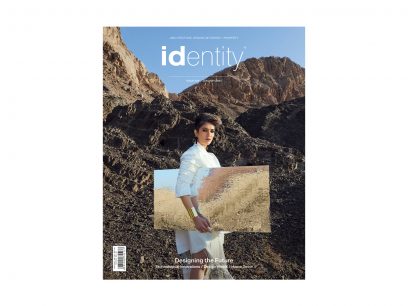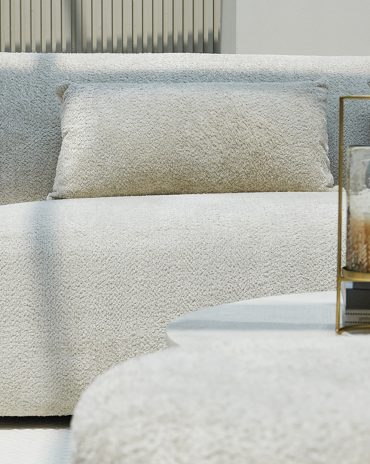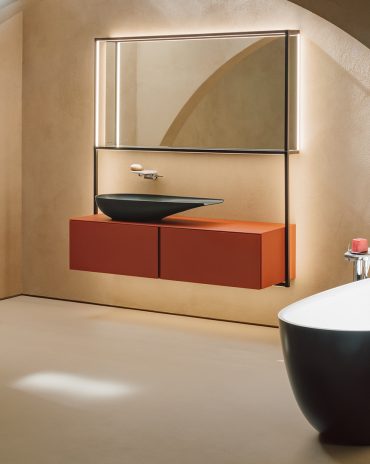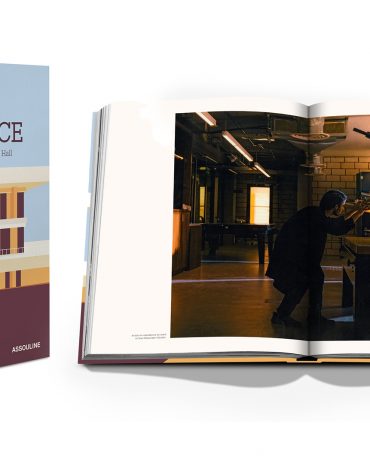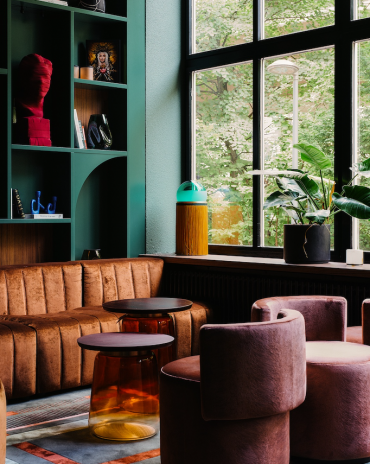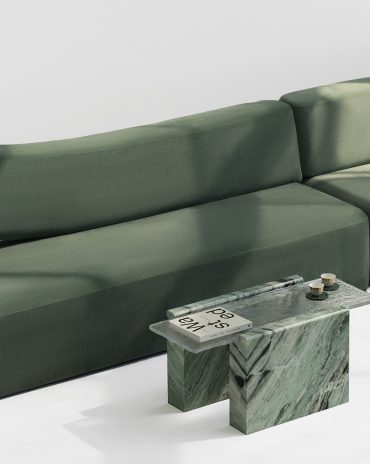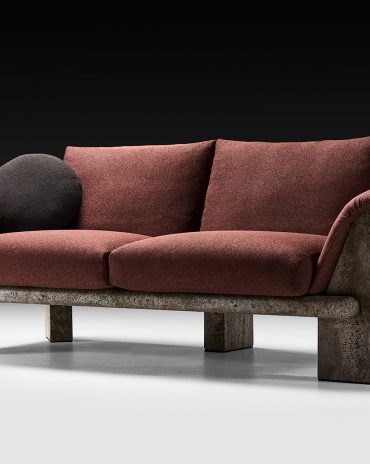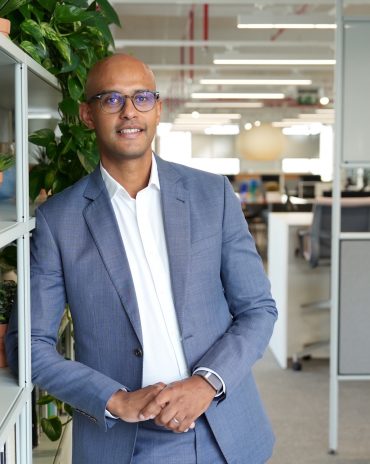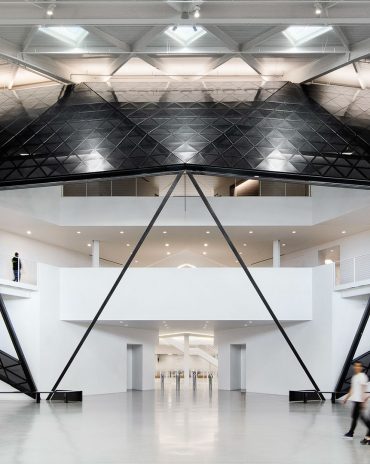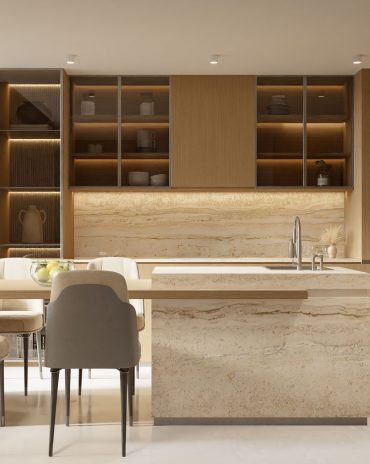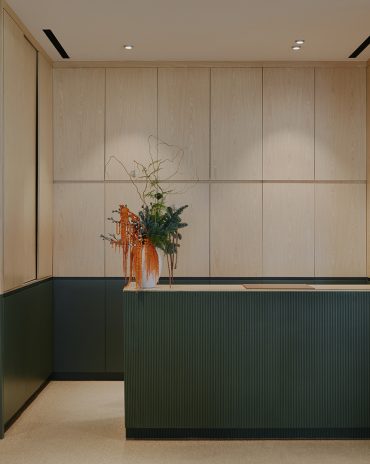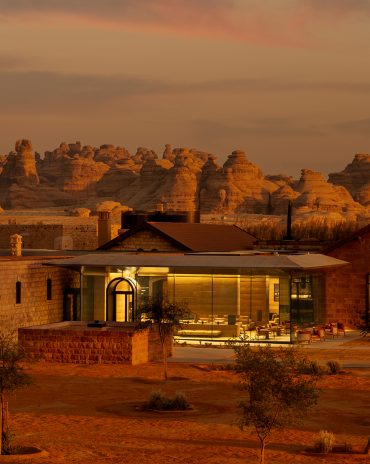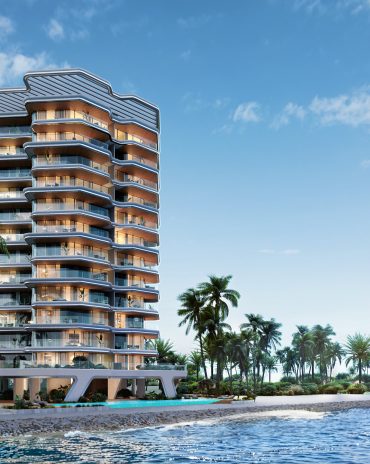Copyright © 2025 Motivate Media Group. All rights reserved.
Showcasing Talent: The UAE Designer Exhibition at Downtown Design 2024
Read about some of the exciting designers and their work that are part of the upcoming exhibition
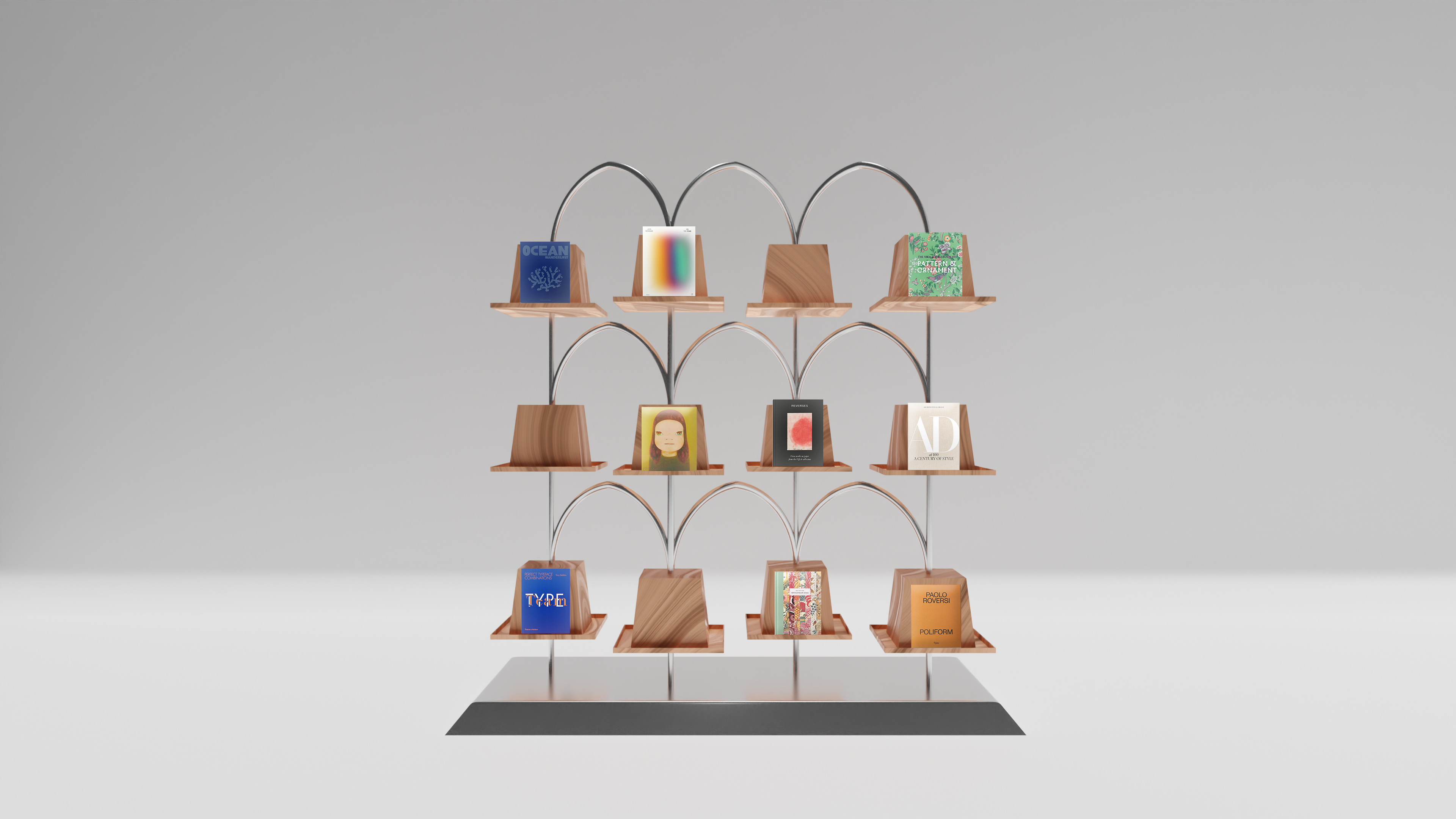
Curated by Omar Al Gurg, the 5th iteration of the UAE Designer Exhibition will take place at Downtown Design. identity caught up with some of the designers to talk about what this recognition means to them, how being part of the exhibition has impacted their practice, and what they are most looking forward to.
Dana Karash
Project: Object 2.0
By deconstructing the leg of Dana Karash’s original chair, Object 1.0, the designer transformed it into Object 2.0—a sleek, geometric shelf.
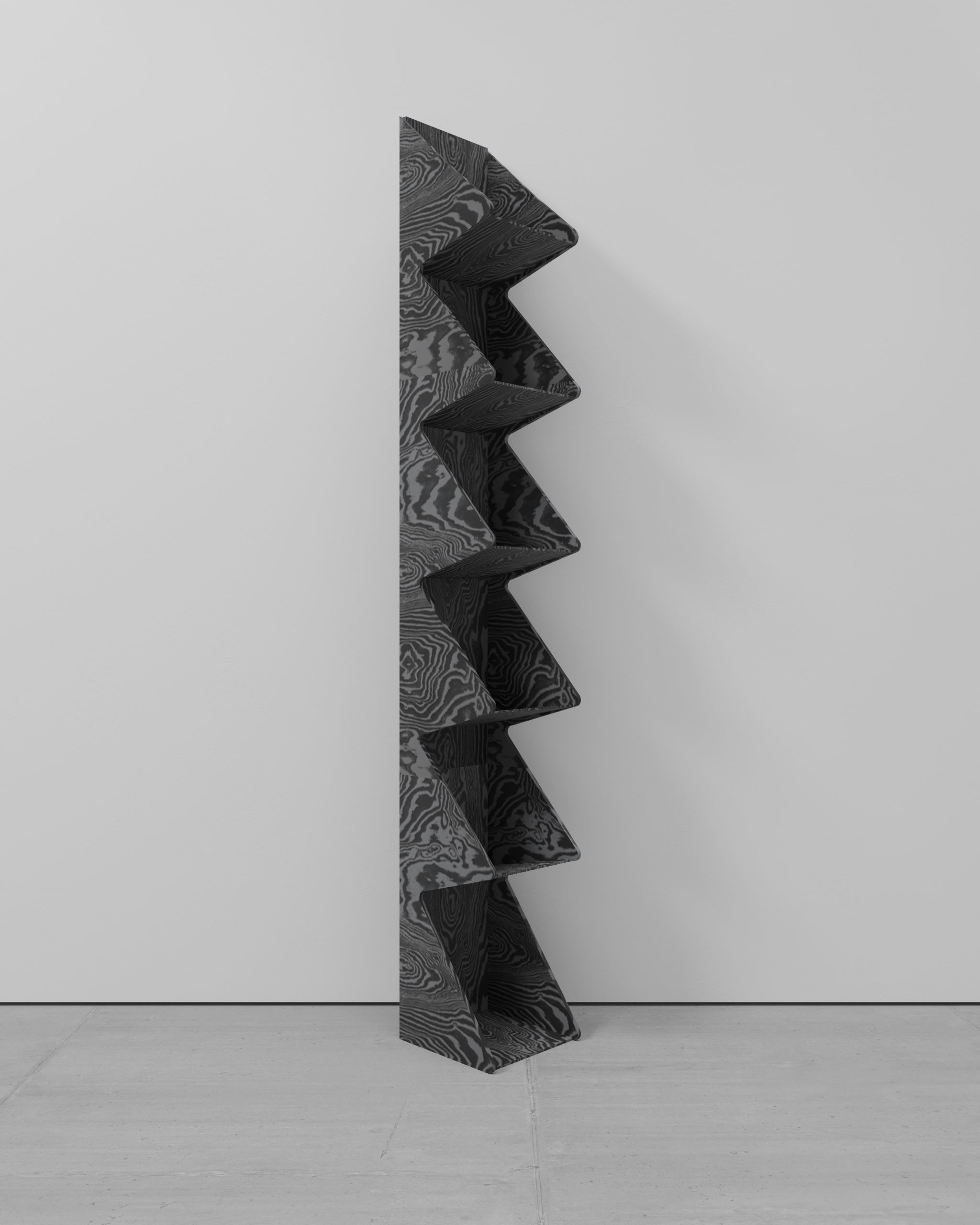
Object 2.0
Q. What does this recognition mean for your brand?
Karash: It’s huge for me and 43Decay. It’s a signal that my work and vision is connecting with the right people. Being recognised in this way helps me get my designs out there, but it’s also a personal highlight and proof that this journey I’m on is heading in the right direction.
Q. How has this process informed your practice?
Karash: Working with a seasoned designer like Omar AlGurg has been truly enlightening. His guidance has encouraged me to reevaluate my design approach and be more intentional with my choices. Previously, I relied heavily on my instincts, but now I ensure that every design element serves a purpose. While I still trust my gut feeling, Omar’s insights have taught me to consider various factors, especially for functional pieces, leading to more informed decisions.
Q. What are you most excited for at Dubai Design Week?
Karash: I’m really looking forward to connecting with fellow designers and exchanging insights into our thought processes. I’m eager to dive deeper into the practical aspects of design and see what my peers have been creating. Additionally, I’m excited to witness how both designers and the public respond to my piece
in person. I’m thrilled to be part of the design community, as this feels like an official entry into this vibrant world.
Aya Moug
Project: MOOY
The MOOY Collection by Byblos features consoles and stools inspired by the Egyptian hieroglyph for water ripples, blending ancient symbolism with modern luxury design.
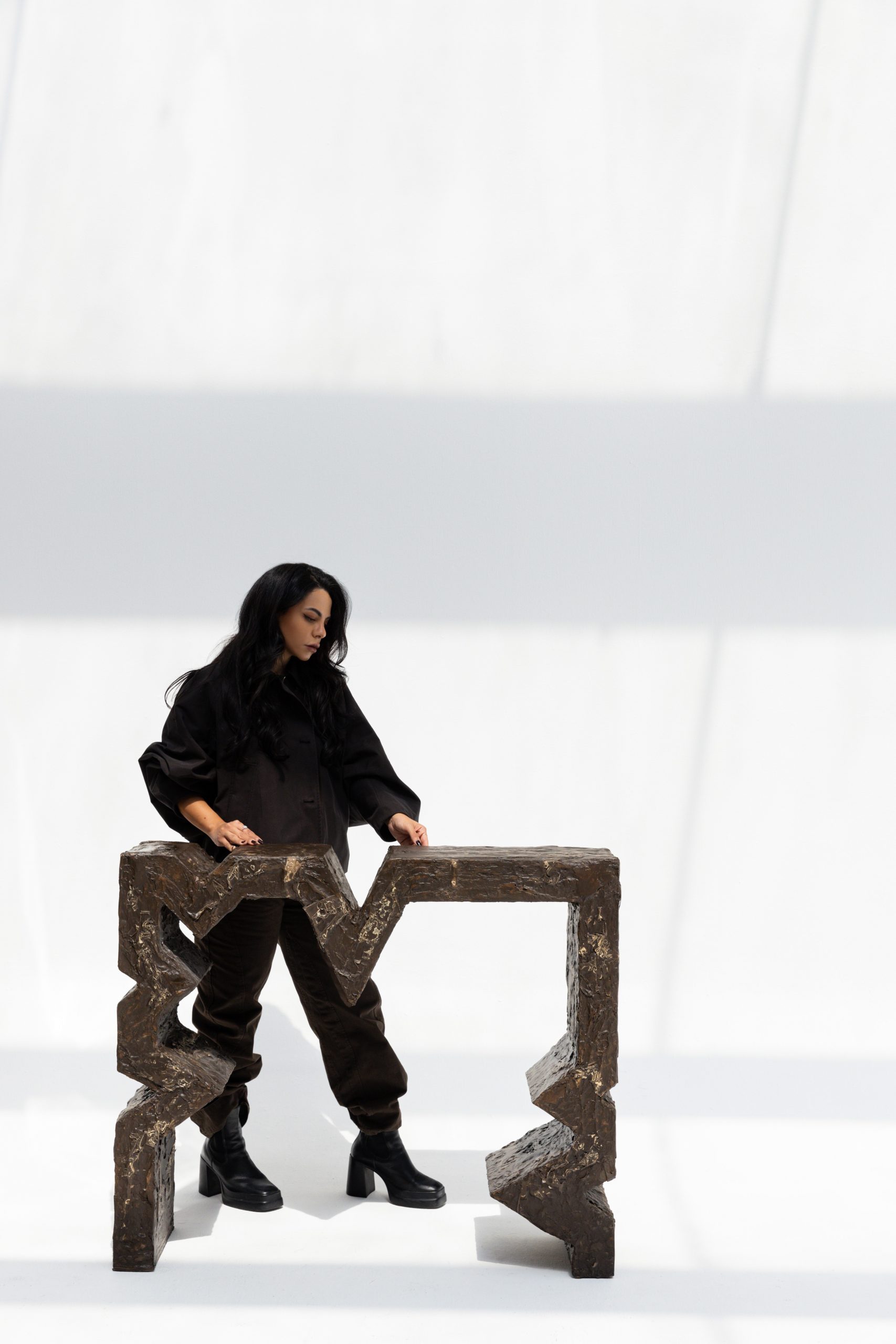
Q.What are you showcasing at the UAE Designer Exhibition 5.0, and what makes it special?
Moug: At the UAE Designer Exhibition 5.0, I am presenting MOOY, a collection inspired by the fluid shapes of water waves, drawn from ancient symbols. This collection is crafted using Byblos, a papyrus-based biomaterial I developed to bring the papyri plant back to life and save it from extinction. Byblos reintroduces papyrus as a sustainable, luxury material that serves as an alternative to conventional options like marble and wood. Its organic textures and natural aesthetic offer a unique sensory experience, balancing sustainability with elegance. Working with Omar Al Gurg, an amazing curator, has been an enriching experience, and I have learned a great deal through this collaboration. It has been a wonderful opportunity to connect with like minded, UAE-based designers and engage with the creative community in Dubai through this platform.
Chafic Mekawi
Project: NASAB Bookcase
Mekawi firmly believes that a bookshelf should reflect the inhabitants of a home, multi-faceted and dynamic, and serve both beauty and function for the room it is located in. Nasab Bookcase is designed specifically for the curated selection of books collected over time, the travel guide book from Mexico, the gifted cookbook, the design coffee table book, and is thereby intended to continually adapt to reflect its owner.

Nasab Bookcase
Q: What does this recognition mean for you and your brand?
Mekawi: This recognition is truly a milestone for both myself and my practice. Being featured at Dubai
Design Week is a significant honor, especially considering the dynamic design landscape here in the region. It validates the years of work and thought that have gone into building my brand and refining my design language. Ultimately, it embodies the conversation I aim to foster between craft, function, and culture —elements that are central to my work. It’s also an opportunity to engage with a global audience and showcase how heritage and technology can blend with modern, functional design in a way that resonates universally.
Q. How has this process informed your practice?
Mekawi: The process of designing the Nasab Bookcase has deepened my understanding of how meaningful storytelling can transform a product from a mere functional piece into something with emotional resonance. Whether located in the home or office, bookcases are in a distinct and complex world of their own. While a sofa or table can furnish a space on its own, a bookcase can’t perform its intrinsic function without displaying objects on its shelves. Yet, the traditional library experience is often marked by stationary reading and cluttered configuration.
The inspiration for this piece came from personal experiences—both cultural and lived—and that’s informed my approach to design moving forward. I wanted to design a shelving that showcases the inherent value of hard copy, that challenges the notion of a traditional bookcase, and that is beautiful yet functional enough to be worth buying. As a result of this creative process, I now find myself thinking more about the stories objects can tell and how they can evolve with their owners.
Q. What are you most excited for at Dubai Design Week?
Mekawi: Dubai Design Week is always an exhilarating event, not just for its creative energy, but for the exchange of ideas it fosters. I’m most excited about the opportunity to connect with fellow designers, creatives, and design enthusiasts from all over the world. It’s a platform where you can see the future of design taking shape in real-time, and being part of that conversation is inspiring. I’m also looking forward to seeing how people interact with and respond to the Nasab Bookcase, and transform their personal collections into a tailored and vibrant centrepiece of their homes.
Chinara Darwish
Project: ONYX Stool
Reflecting the essence of metamorphosis, the Onyx Stool evolved from discarded materials into a design object that stands the test of time. Crafted entirely from locally sourced recycled HDPE water pipes and production off-cuts, Onyx aims to embody the circular design approach, challenge traditional material choices and showcase the transformative power of design.
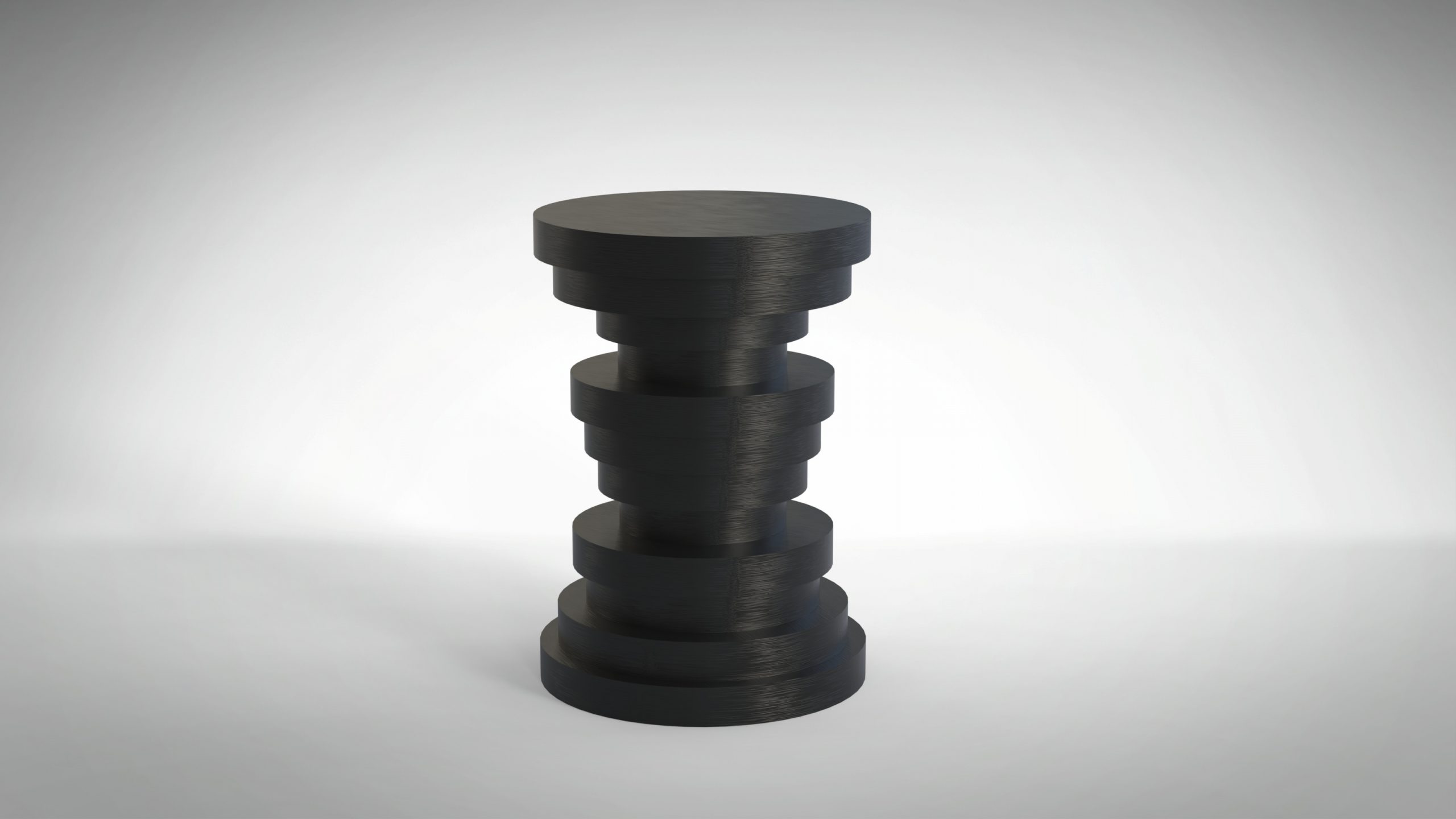
Onyx by Chinara Darwish
Q.What does this recognition mean for you and your brand?
Darwish: Being selected for the UAE Designer Exhibition is a great honor and a pivotal opportunity to present
my evolving brand to a broader audience. My design practice focuses on upcycling industrial plastic waste, aiming to elevate the perception of recycled polymers as a viable material choice and showcase the transformative power of design. It is therefore a great opportunity to celebrate sustainable design practices among other talented designers. Last year, I debuted at Dubai Design Week with the Tanween 2023 Collection by Tashkeel, and returning this year to the fair will help to maintain the momentum of [my] Alchemy Series collection.
Sara Bokr
Project: Tabi Rack
The Tabi Rack is an experimental shoe rack that integrates worn garments into furniture design. Inspired by Japan’s traditional tabi shoes and the deconstructive style of Maison Margiela, the design features an abstracted tabi silhouette. This cylindrical piece, supported by three legs, has a slit that echoes the tabi’s split-toe design, with two curved doors revealing three internal shelves. The unfinished white paint gives it a punk-inspired, aged look, while an adjustable ruched fabric piece allows it to function as a side table. The tabi shoe, with its rich history, has evolved from socks to fashion items, embodying Dadaism by challenging societal norms and traditional aesthetics. Similarly, the Tabi Rack dismantles established furniture norms, creating a piece that reflects the rebellious and transformative spirit of the tabi, evoking both disruption and integration.
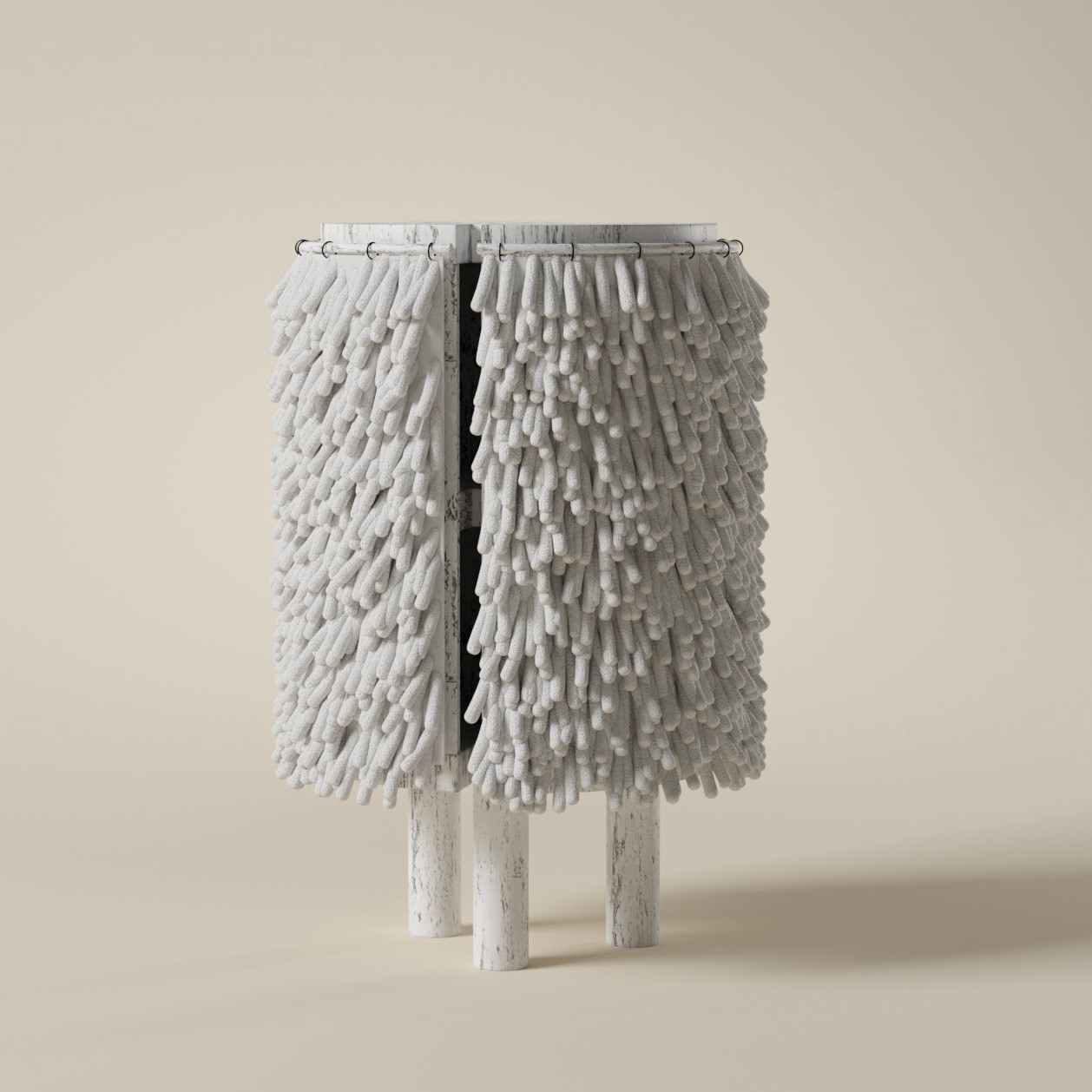
Q. What does this recognition mean for you and your brand?
Bokr: Having Circ Studio exhibit its first piece at Dubai Design Week is a milestone for us, as it marks our journey in merging the architectural world with furniture and object design in the middle east and the region.
For us, being in the exhibition highlights how our design language doesn’t just shape spaces but can also
extend into furniture design, worn garments, and even fashion. It celebrates the idea that design is not
confined to one medium, but rather an interconnected exploration of everything that surrounds us.
Q. What are you most excited for at Dubai Design Week?
Bokr: To see how people will interact with and respond to the Tabi Rack. To hear their reactions, and
gather insights directly from the audience. It will be interesting in shaping our future designs and
connecting with the wider design community from our region.
The Latest
Textures That Transform
Aura Living’s AW24 collection showcases the elegance of contrast and harmony
Form Meets Function
Laufen prioritises design, functionality and sustainability in its latest collections
Preserving Culture, Inspiring Creativity
Discover the Legacy of a Saudi Art Space: Prince Faisal bin Fahd Arts Hall explores the Hall’s enduring influence on the cultural fabric of Saudi Arabia
Channelling the Dada Spirit
Free-spirited and creative, The Home Hotel in Zurich injects a sense of whimsy into a former paper factory
id Most Wanted- January 2025
Falaj Collection by Aljoud Lootah Design
Things to Covet in January
identity selects warm-toned furniture pieces and objets that align with Pantone’s colour of the year
Shaping the Future of Workspaces by MillerKnoll
Stacy Stewart, Regional Director Middle East & Africa of MillerKnoll discusses the future and evolution of design in workspaces with identity.
Shaping Urban Transformation
Gensler’s Design Forecast Report 2025 identifies the top global design trends that will impact the real estate and built environment this year
Unveiling Attainable Luxury
Kamdar Developments has launched 105 Residences, a new high-end development in Jumeirah Village Circle.
The Muse
Located in the heart of Jumeirah Garden City, formerly known as ‘New Satwa’, The Muse adds to the urban fabric of the area
Cultural Immersion Meets Refined Luxury
The Chedi Hegra opens its doors in AlUla’s UNESCO World Heritage Site
Redefining Coastal Luxury
Sunshine Bay on Al Marjan island combines seaside views, exceptional design, and world-class amenities to create a unique waterfront haven

